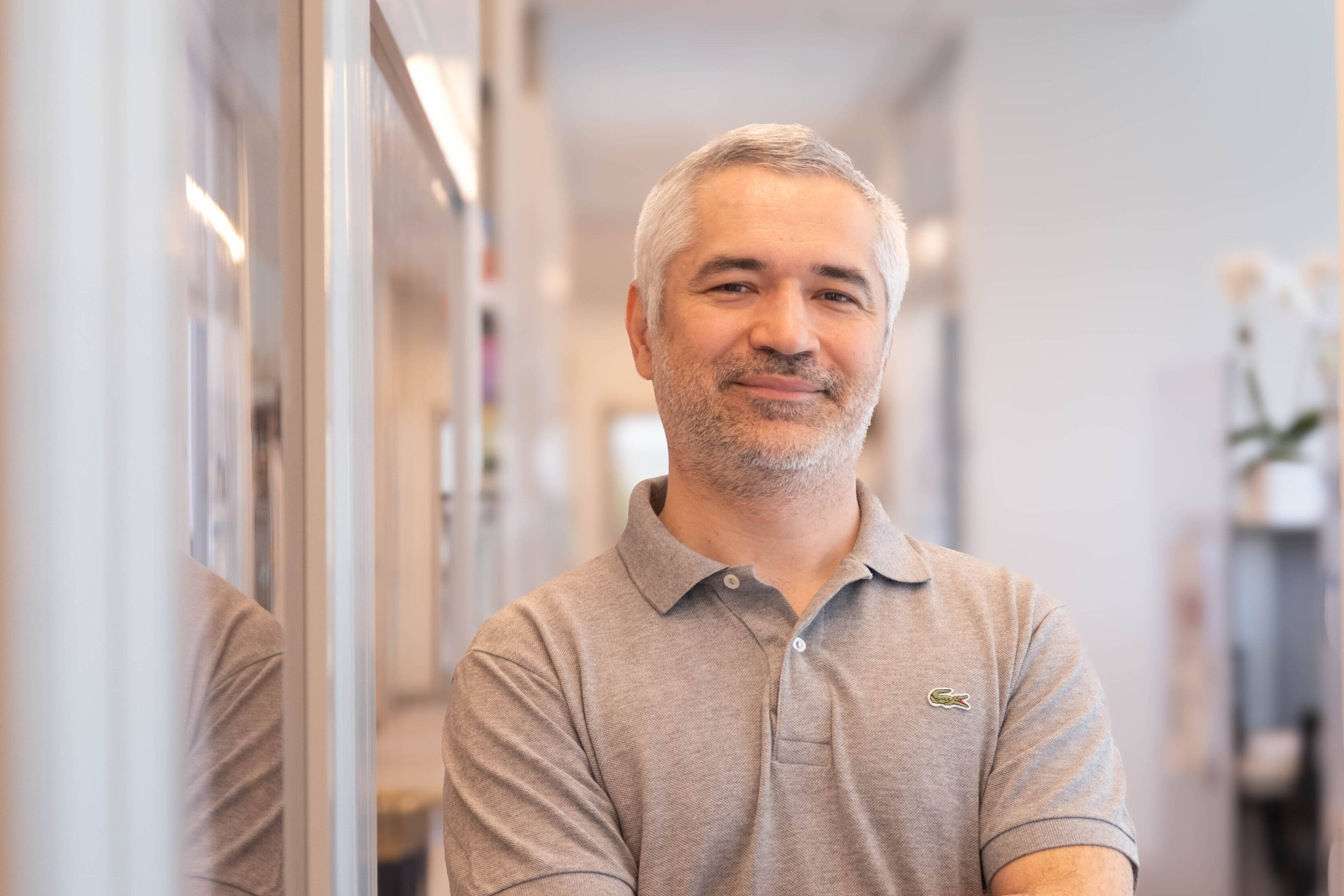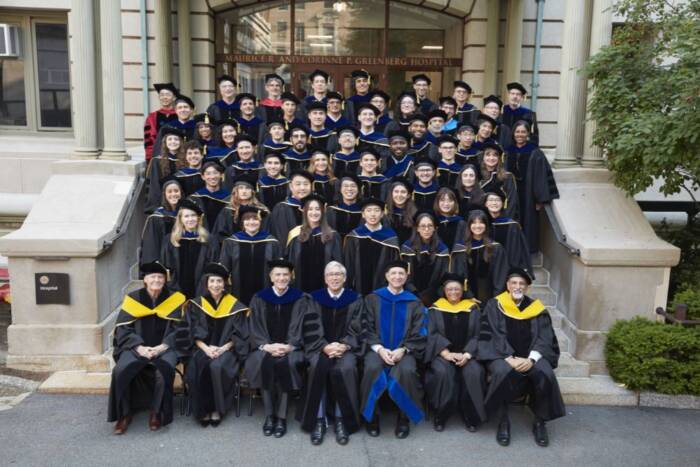Rockefeller’s newest faculty member investigates how antibodies are made
When a pathogen invades the body, the immune system responds by producing proteins called antibodies that are precisely targeted at the invader. Gabriel Victora, an immunologist who studies how these finely tuned antibodies are generated, is the most recent addition to Rockefeller’s tenure-track faculty. Victora will relocate from Massachusetts Institute of Technology’s Whitehead Institute for Biomedical Research, where he is currently a Whitehead Fellow, in September of 2016 to head the Laboratory of Lymphocyte Dynamics.
Victora has combined a number of techniques, including the development of new mouse models and cutting-edge microscopy, to shed light on the processes by which the immune system refines its response to an infection.
“The immune system has an incredible ability to respond to foreign substances by producing antibody molecules that bind to the invading pathogen with extremely high affinity and a remarkable degree of specificity,” Victora says. “I’m interested in understanding the molecular mechanisms behind this process, which will be essential for designing better vaccines and developing treatments for allergies and autoimmune diseases.”
Uncovering mysteries of the immune system
Victora grew up in a family of scientists in the south of Brazil. He first came to New York City to study music, and had a brief career as a concert pianist before turning his attention to science.
As a Ph. D. student at the NYU School of Medicine and a visiting student in Michel Nussenzweig’s laboratory at Rockefeller, Victora investigated affinity maturation, the process by which antibodies are tuned to efficiently recognize a specific invader. During this process, the DNA of a small region of the antibody undergoes many changes, producing genetically different variations. Subsequently, the immune system singles out the versions with the highest affinities to the pathogen, and induces them to proliferate.
This process occurs in anatomical structures within lymphoid organs known as germinal centers (GCs), where B cells—the cells that produce antibodies—multiply and mutate. In addition to defining the types of B cells in GCs and their migration patterns, Victora’s research showed that another major component of the immune system, T cells, are involved in this process.
As a Whitehead Fellow, a position he has held since 2012, Victora’s lab continued to explore the antibody selection process. Among other recent discoveries, his research has shown that T cells, unlike B cells, are not physically restricted to individual GCs. This finding might help explain how T cells contribute to maintaining diversity in the antibody response of B cells, leading to the production of high-affinity antibodies.
The Victora lab at Rockefeller
At Rockefeller, Victora will study antibody responses at three different levels: those of molecules, cells, and whole organs.
“On the molecular scale, I aim to identify the key genes involved in how B cells choose between remaining within the GC or differentiating into a different cell type,” says Victora. “At the cellular level, the lab will explore how interactions between cells drive affinity maturation and GC development. And at the organ level, we will investigate how different GCs within the same lymphoid organ vary in terms of the antibodies they carry, and how these antibodies change over time to produce an effective antibody response.”
With the broad scope of this work, Victora and his lab members hope to answer lingering questions about the body’s response to invading pathogens.
“Gabriel is an outstanding addition to the university,” says Marc Tessier-Lavigne, the university’s president. “He is an innovative and accomplished immunologist, and his goal of understanding how immune cells are selected in germinal centers addresses a critical issue in vaccine development. This is work that has tremendous potential to reduce human suffering, and I look forward to watching his research proceed at Rockefeller.”


